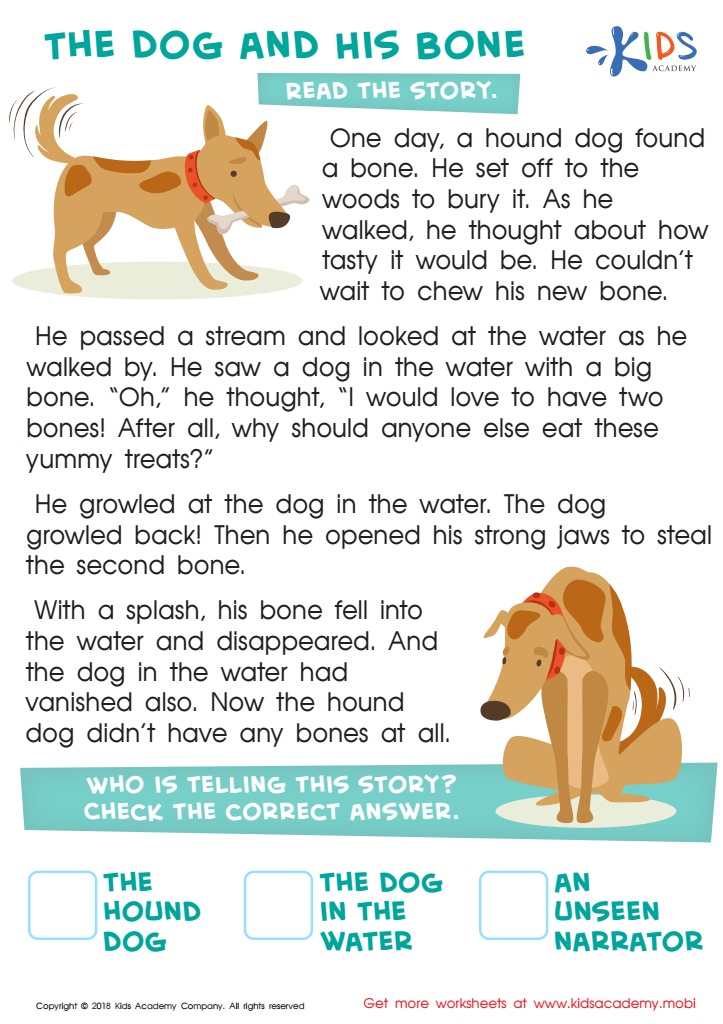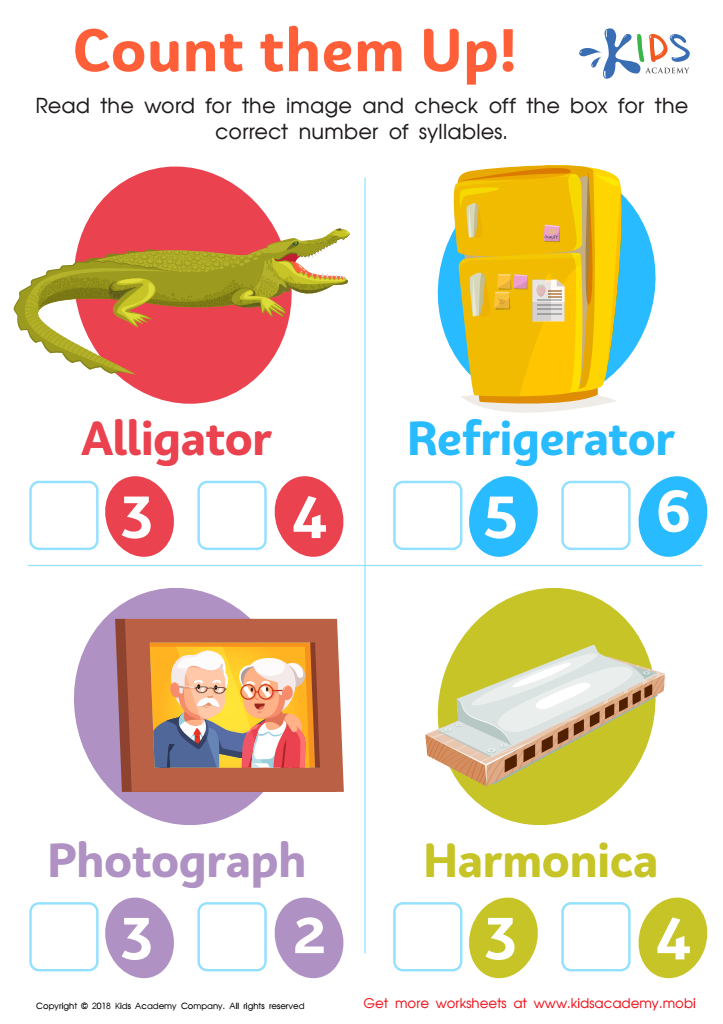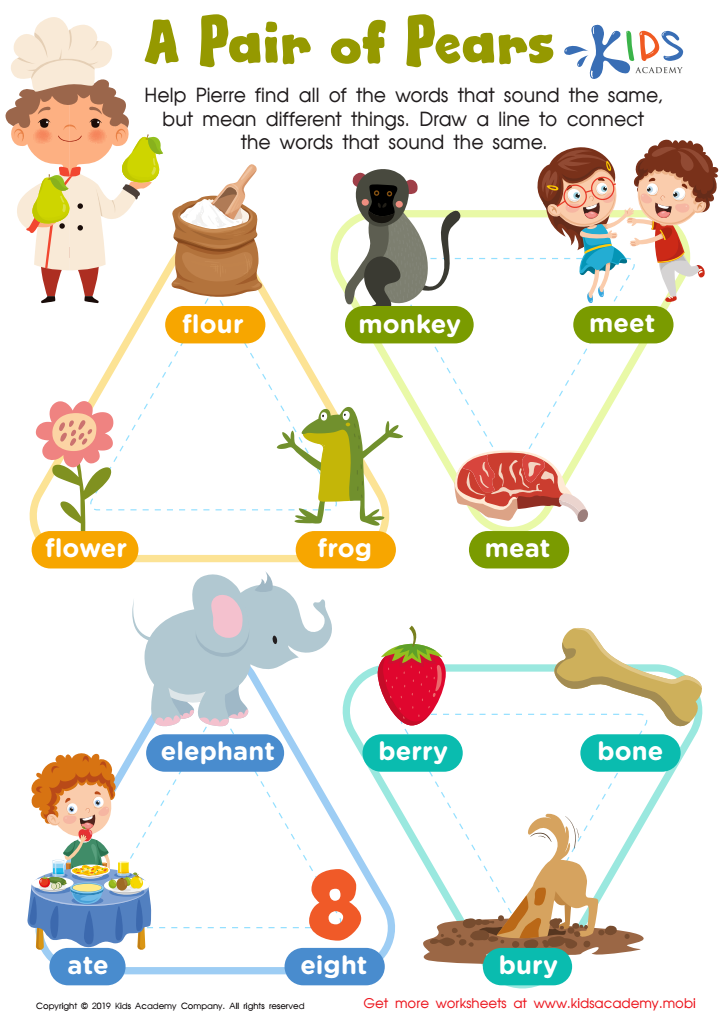Number Recognition Normal Reading Worksheets for Ages 3-9
4 filtered results
-
From - To
Explore our engaging "Number Recognition Normal Reading Worksheets" designed for children ages 3-9! These printable resources offer a fun and interactive way to help young learners master number recognition skills. Our worksheets cater to various learning styles, featuring colorful visuals and playful activities that keep kids entertained while they learn. Ideal for both home and classroom settings, these activities support developmental milestones, including counting, number identification, and basic math concepts. Foster a love for numbers in your child with our carefully curated worksheets, making learning a joyful experience. Start your journey towards numeracy success today!


Fish Worksheet


The Dog and His Bone Worksheet


Count Them Up Worksheet


Pair Pears Worksheet
Number recognition and reading skills are foundational elements in early childhood education, particularly for children aged 3-9. These skills are essential because they set the stage for future academic success. When parents and teachers emphasize number recognition, they enable children to identify and understand numbers, which is crucial for math development. Early recognition fosters number sense, allowing children to engage in basic arithmetic and problem-solving as they progress in their education.
Similarly, reading proficiency lays the groundwork for literacy development. This age range is critical for vocabulary expansion and phonemic awareness; recognizing letters, sounds, and sight words enhances overall language skills. The ability to read encourages comprehension, communication, and critical thinking.
Investing time in both number recognition and reading promotes a well-rounded foundation for lifelong learning. It enhances children’s confidence as they navigate math and literacy tasks, improving their chances of academic success. Moreover, strong early skills correlate with lifelong outcomes, including higher education opportunities and career prospects. By supporting these core competencies, parents and teachers help children develop essential cognitive and social skills, fostering a love for learning that can last a lifetime. Ensuring children are proficient in these areas is vital for their overall development and future success.
 Assign to My Students
Assign to My Students















